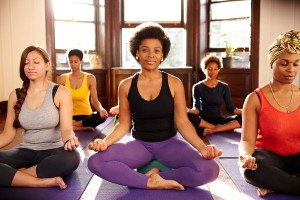During the >>My Brother’s Keeper town hall event last month in Washington, D.C., President Obama boldly addressed one of the most offensive insults tossed at black people in America.
And it’s not what you might think.
“Acting white” (and its nasty friend “not black enough”) is one of the most toxic put downs that almost every black woman you have met (or have yet to meet) has ever heard. In my less than three decades on Earth, it’s one that hasn’t passed me by.
I was raised in a middle class black family in a predominantly white Atlanta suburb, and my struggle for an identity was a daily one. I wasn’t “hood enough” to hang with the cool black girls; I spoke using good grammar, got good grades and spent my weekends playing soccer. And to them, those were things that only white girls did. Grade school girls can be mean no matter what, but this rejection added another layer of discomfort to The Awkward Years.
As much as I enjoy having something in common with the president, the designation of ‘acting white’ is not one I relish. Barack Obama — the first black president of the United States — has probably heard this insult more than most. After fielding a question from a young Native American man, who wanted to know what the federal government was doing to help his people preserve and revitalize their culture, >>Obama made the foray into “acting white.”
“Sometimes African Americans, in communities where I’ve worked, there’s been the notion of “acting white” — which sometimes is overstated, but there’s an element of truth to it, where, okay, if boys are reading too much, then, well, why are you doing that? Or why are you speaking so properly? And the notion that there’s some authentic way of being black, that if you’re going to be black you have to act a certain way and wear a certain kind of clothes, that has to go. Because there are a whole bunch of different ways for African American men to be authentic…
…But my point is, is that you don’t have to act a certain way to be authentic. ”
I wish I’d heard Obama say that when I was growing up. It’s a fantastic message for black boys, but it’s maybe even more powerful for black girls. I’ve always felt secure in myself and in my race, but that didn’t lessen the sting when well-meaning (albeit misled) friends joke “You’re the whitest black girl I know.” As if having a college degree, involved parents, and an affinity for Bikram yoga (among other things, including a general cluelessness of 90’s hip-hop and the NBA) makes me any less black. As if these things are a barometer for my so-called “blackness,” and somehow make me less authentic than someone who behaves a certain way.
Washington Post columnist Jonathan Capeheart nailed it when he wrote that >>“the insult is as shortsighted as it is ignorant.” The insult of “acting white,” and those that hurl it, feeds off the assumption that the victim is ashamed of his or her race, and therefore has to put on the mask of another race to feel secure. “Acting white” is an effort to keep the victim down, fueled by the philosophy that self-betterment and striving for excellence is a “whites-only” ideal.
The sting of these words lies in the implication that as a black woman “acting white,” you’re being inauthentic; you’re fake. It implies that you have to act a certain way to be considered a part of your race, and if you dare color outside of those lines, you’re betraying who you really are. Really, there is no legitimate or authentic way to be black. The best way to be black, or whatever race(s) you identify with, is to do you. Be you. And accept that it is more than enough.

As an Af-Am male of 59 years, I went through this exact same thing in high school (also called an “Uncle Tom”). A pity this kind of thing is still happening nearly 50 years later. It is gratifying, however, that Ms. McIntyre came to the same accurate conclusion that I did; be yourself. Add to that, keeping company with those whom you get along and accept you. You know, the normal way one makes friends.